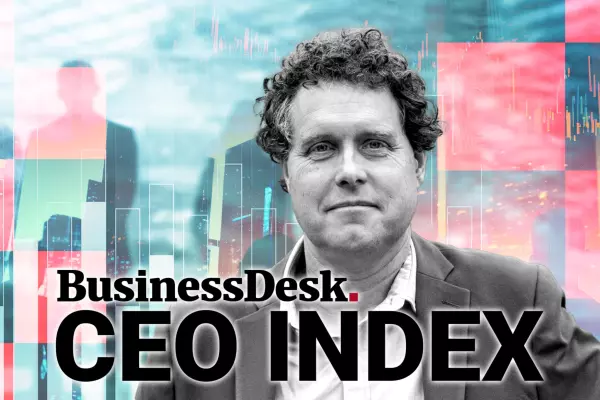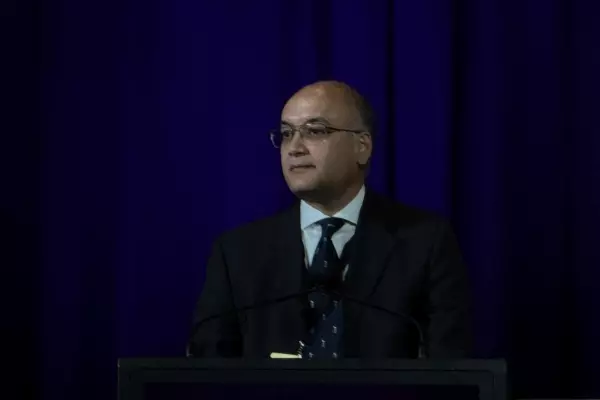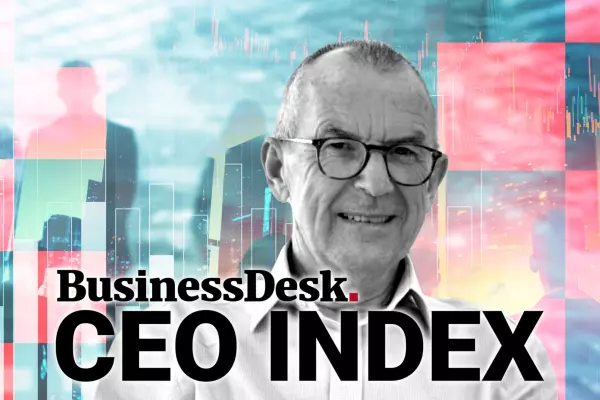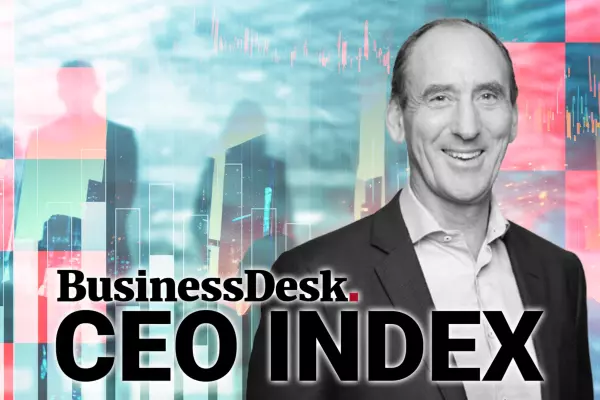Don’t go telling James Kilty that New Zealand has an energy crisis.
Despite a calamitous decline in natural gas reserves and wholesale electricity prices that spike at the whiff of a winter drought, the chief executive of national grid operator Transpower is a bull on NZ’s energy future.
“I believe New Zealand is the lucky country, given its incredible endowment of natural resources, energy, and otherwise, in a world looking to electrify,” says Kilty.
NZ’s electricity system is 90%-plus renewable and tracking to be 95% by 2030, while the rest of the world is around 30%, he says.
By comparison, a recent McKinsey report suggests the world might get to about 60% renewable electricity by 2050.
“We have an advantage and can attract business here if we are willing to make the trade-offs and support growth,” Kilty says.
Says one close industry observer: “He’s an evangelist for everything electrification and everything that goes with it, but in an economically sound and sensible way – electrification with jobs.”
Upbeat tone
Despite Kilty being in the role a relatively short time, his background as well as start at Transpower pulled him into the inaugural BusinessDesk CEO Index in the public sector category. Kilty has been in the Transpower job only since February. The judging panel debated whether that was long enough in the role to make the CEO Index.
We included him because the Index seeks to identify remarkable leaders, and Kilty, like most of those to be found in it, is deeply uncomfortable about his inclusion.
“This is not about me. It’s never about me,” he insists, standing somewhere in Arthur’s Pass and thinking how good it would be for a wind farm if it wasn’t so damn beautiful.
Kilty’s upbeat tone and aspirational engagement on NZ’s energy future go beyond the usual remit of the head of a state-owned monopoly whose main job is to run the national electricity grid without the lights going out or anything blowing up.
His fervour for a NZ powered by renewables may grate with some, one wag dubbing him “Electric Jesus”.
Another energy sector insider says that’s unkind. “Visionary, thoughtful, caring, insightful. All those things, rather than referring to a messianic complex.”
Multibillion-dollar decisions
Kilty’s leadership potential was being recognised as far back as 2011, when he was named Young Energy Executive of the Year in the Energy Excellence Awards, an annual industry fixture.
As head of renewable development and eventually deputy chief executive at Contact Energy, Kilty either got green-lit, progressed through development, or completed a range of wind and geothermal electricity generation projects.
He sought to lead Contact and was considered at least once, and possibly twice, but his first CEO position was at New Plymouth-headquartered regional electricity lines network owner Powerco, from late 2021.
As operator of the open-access corridor along which all electricity must pass, Transpower’s ability to foresee both where and how the grid will be needed in a decarbonised economy – whether the assets are already in place or yet to be built – is not just important but involves multibillion-dollar infrastructure decisions.
It also makes Kilty something of an honest broker in a sector riven with argument over how the competitive parts of the market work.
Solid analysis
Kilty is still proving himself to the business community and is aware of the responsibility he has taken on. But his refreshingly positive take on the position NZ is in makes him stand out against the current national malaise, says BusinessDesk founding editor, Pattrick Smellie.
“James’s ambition and confidence for our country’s prospects are refreshing, and they're grounded in solid analysis that envisages a credible path to a low-carbon NZ that is wealthy by using renewable energy endowments well.”
BusinessDesk asked Kilty for his approach to the CEO Index’s five criteria: vision, impact, innovation, resilience, and influence.
Vision: Kilty says his personal vision and the purpose he sees for Transpower are well aligned.
“I am personally committed to enabling a resilient, thriving, and ambitious Aotearoa, a nation that is willing to make the trade-offs necessary to create a future that is better for our kids and grandkids.
“That purpose is 100% aligned with Transpower’s purpose – enabling the energy future. It is also closely aligned with Transpower’s growing role in the economy,” he says.
Strongly believing that leadership transparency enables trust, Kilty uses forums with Transpower’s workforce of 1,100.
These include an annual roadshow and monthly chief executive hui to smaller group sessions.
“Getting out and talking to our stakeholders, engaging on our Te Kanapu programme (bringing ideas from across Aotearoa to develop a future grid blueprint), listening to them and sharing my vision, and how it connects to their work and their vision for the future, is important to me,” says Kilty.
Impact: Every day, Transpower works with the electricity sector to keep the lights on and the power flowing in its roles as both system operator and national grid owner, says the CEO.
That makes it an anchor role in the NZ economy that is hardly acknowledged, except when it stops working, when political hell breaks loose.
Kilty describes his focus as ensuring the organisation adapts quickly as the world moves to electrify, without sacrificing the quality of Transpower’s work.
“That requires us to work with the sector, regulators, and stakeholders to step up into an even bigger role in the economy. Delivering on that – enabling electrification, keeping the lights on, enabling growth, is how I will measure impact,” he says.
Innovation: Innovation can be technology-led, but also cultural. As Transpower looks to replace the Cook Strait cables and control system, the company's leadership is having to innovate to manage the conflict between regulatory approvals and the commercial realities of the global markets it procures from, says Kilty.
Transpower is also working with local universities and industry members to lead the world in understanding and managing the risks to electricity systems from space weather.
Staying humble and being willing to keep learning are key to an innovative culture, he says.
“An environment where clever people are safe to debate and experiment toward better outcomes is fundamental to this. Providing context for that is the work of leadership.”
Resilience: Some previous personal challenges have helped the Transpower CEO with his ability to take what life throws at him.
“Many years ago, I was a young, single dad. That experience taught me a lot about resilience, purpose, and prioritisation,” he says.
Years later, Kilty lost his father to cancer at a challenging time in his career. “Again, that sense of purpose and resilience helped me navigate a difficult time in my life,” he says.
Influence: Kilty has enjoyed discovering the depth of capability at Transpower, and says his aim is to enable his workforce to deliver.
“I believe that the people I see and meet every day can enable the energy system to deliver on the promise of an ambitious, resilient, and thriving New Zealand, and I want to support them to do it,” he says.
A good book: The Road, by Cormac McCarthy. “It’s a grim but vivid reminder of the guiding role of a father/parent and of how hope and humanity can survive even in terrible circumstances,” says Kilty.
Sliding doors: If he wasn’t a CEO, Kilty says he would still work in the energy sector. “If I got to do a ‘day in the life’ swap, I would switch with an energy regulator. Having worked across all parts of the sector, it would be interesting to walk a mile in the shoes of a regulator.”
● James Kilty is a finalist in the public sector category of the inaugural BusinessDesk CEO Index. The category winner will be announced on Nov 18. BusinessDesk will publish a report on the overall winner on Nov 19.
● Read more of the BusinessDesk CEO Index here.











